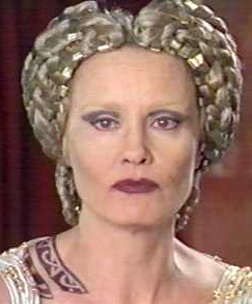It's nearly impossible to take any figure, public or private, and declare them unproblematically feminist. For one, people are multifaceted and contradictory within themselves, and hardly ever conform to one ethical ideal. On top of that, the accepted definition of 'feminist' has morphed enough since its creation that it can be difficult to pin down exactly what the qualifications are, never mind whether all self-declared feminists will agree on whatever you decide.
Of course, people try to declare each other feminists anyway. Sometimes most people agree on a verdict; Laverne Cox is a feminist, Bill O'Reilly is not. More often, particularly with historical figures who are too dead to directly ask, there is some contention. Shakespeare is a fine example of the latter, and it's doubtful that critics will ever totally agree.
Feminism as we know it today was not even a twinkle in the eye of Elizabethan writers. Our understanding of gender has progressed astronomically in the four hundred years separating Shakespeare and bell hooks. Asking what Shakespeare thought of the construction and deconstruction of heteronormative gender binaries is a moot point; the thought as we think it would never have occurred to him. There was no word for heteronormativity in Elizabethan England, it just was.
Calling Shakespeare a feminist is a bit like calling Socrates a communist; it's more than a little anachronistic. Still, taken in the context of his time, Shakespeare can certainly be read as an advocate for gender equality and transgression – a sort of proto-feminist, an early example for later creators to follow. His separation from the words and theories we have today doesn't preclude a relatively radical view of gender and sexuality reflected in his work.
Analysis of ideals in Shakespeare's work that could translate to an analogue of feminism requires presumption of authorial intent, which is, particularly on its own, a questionable method of critique. However, with historical context taken into account, it's possible to make guesses at the way a typical audience of the time would have perceived his work – and, therefore, to make even more abstract guesses at the sort of reactions he might have attempted to provoke with particular plots or lines. And though nearly every play he wrote ended in a reversion to heteronormative standards, the meandering queerness of the meat of his plays suggests at least a passing interest in transgressing gendered expectations.
Would Shakespeare have ascribed to generalized 'feminist' ideals were he alive today? It's impossible to know, but his work says maybe.






